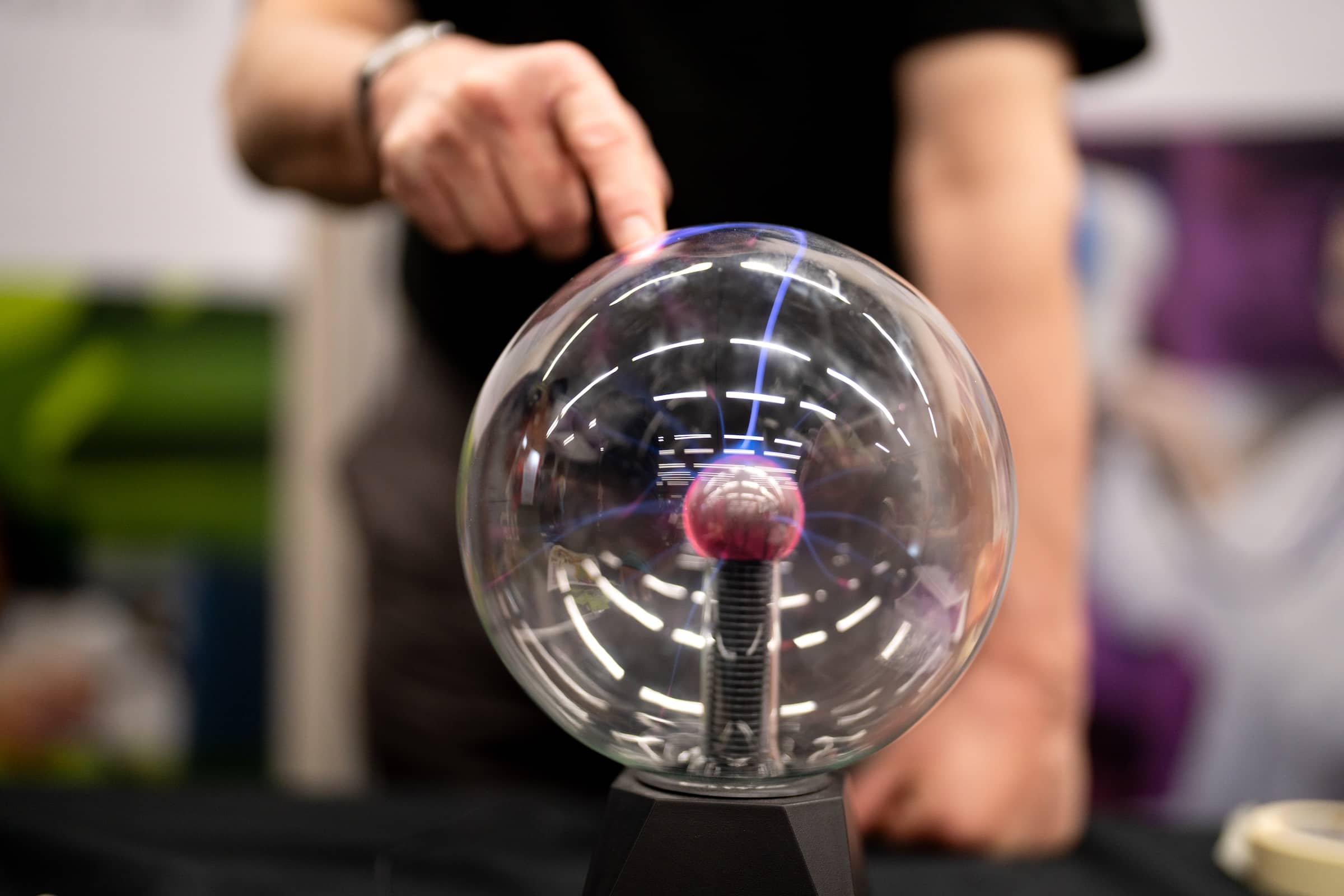The Cambridge Festival returns on 19 March with a 17-day extravaganza of nearly 400 mostly free events, inviting everyone to explore how our world might look in the future and uncover groundbreaking ideas shaping our lives right now.
From unmissable opportunities to chat with advanced humanoid robots, to thought-provoking art installations that ask whether we should tear up currency, this year’s Festival promises a creative, insightful and often surprising encounter with cutting-edge research.
The full programme launches on 17 February, with bookings opening the same day. Events will unfold in venues across Cambridge, featuring talks, debates, tours, demonstrations, performances and hands-on workshops for all ages.
Covering themes of environment, health, society and discovery, it’s one of the largest festivals of its kind in the UK, offering a chance for visitors to connect with researchers at the University of Cambridge.
Throughout the Festival, a rich variety of topics are up for discussion. In Sensors for a Smarter Home, learn how devices such as temperature and humidity monitors, along with smoke and leak detectors, are set to transform home safety and comfort.
At Ideas that could change the World, Gates Cambridge researchers challenge us to imagine everything from 3D-printed organs to climate-adaptable plants.
Meanwhile, a conversation with Furhat, a remarkably lifelike conversational robot, reveals how humanoids are fast becoming an essential part of our daily lives.
If you’re intrigued by robotics on a deeper level, Navigating the physical world: The Essential Role of Robots offers a hands-on workshop to explore bio-inspired machines and hear from researchers shaping their future applications.
In healthcare-focused events, Tomorrow’s health today: AI and data science explained highlights how artificial intelligence is transforming early disease screening and outbreak monitoring.
Futuristic medicine offers a glimpse of the once science-fiction methods already becoming reality, while The impossibility of whales uncovers how certain species might hold the key to healthier human ageing through their impressive DNA repair mechanisms.
Art and technology collide in Cambridge science in the year 2125, which showcases a vibrant reimagining of what the world could look like in a century’s time.
Meanwhile, Tilda Swinton’s directorial debut, The Hexagonal Hive and a Mouse in a Maze, delves into intelligence, learning and play, all within an immersive film setting.
Visitors keen on participatory art can join Tearing up money: Turning Currency into Collective Art, a workshop repurposing worthless Venezuelan banknotes in a creative protest against economic injustice.
Discussions on global conflict and its impact on journalism and healthcare also form a key strand of the Festival. Keeping the Storytellers Safe in War brings together frontline photographers to examine the risks faced by journalists while Protecting Healthcare in Armed Conflict presents an interdisciplinary panel responding to an alarming rise in attacks on medical workers.
For those drawn to histories both local and global, The Cambridge Prehistory of partitions: A walking tour reveals Cambridge’s surprising ties to colonial legacies, and Love and friendship in the archive peeks into the often-overlooked life of Amélie Bosquet—best known as the spark behind Flaubert’s famous remark, “Madame Bovary, c’est moi.” Elsewhere, Living with Jane Austen updates the beloved author’s relevance for modern audiences.
Another artistic highlight is Magma Rising: A Journey to the Centre of Icelandic Volcanoes, an immersive exhibition that blends Verne-inspired fantasy with real-life objects, film props, artworks and even seismometers.
It’s a family-friendly experience that welcomes visitors to explore the mythical depths of Iceland’s volcanic landscape.
David Cain, Cambridge Festival Manager, sums up the spirit of this year’s festivities: “Our programme reflects a rapidly changing world and the urgent solutions we need.
We hope people of all ages will seek fresh perspectives and embrace something new, whether by tapping into our city’s research or simply indulging in creativity and fun.”
Mark your calendar for 17 February to browse the full programme and book your place at events—then get ready to immerse yourself in everything from robotics and AI to ancient volcanoes, provocative art and visionary science.
There’s nowhere better than Cambridge this spring to feed your curiosity and discover the ideas driving tomorrow’s world.
For more information, please visit: www.festival.cam.ac.uk/





